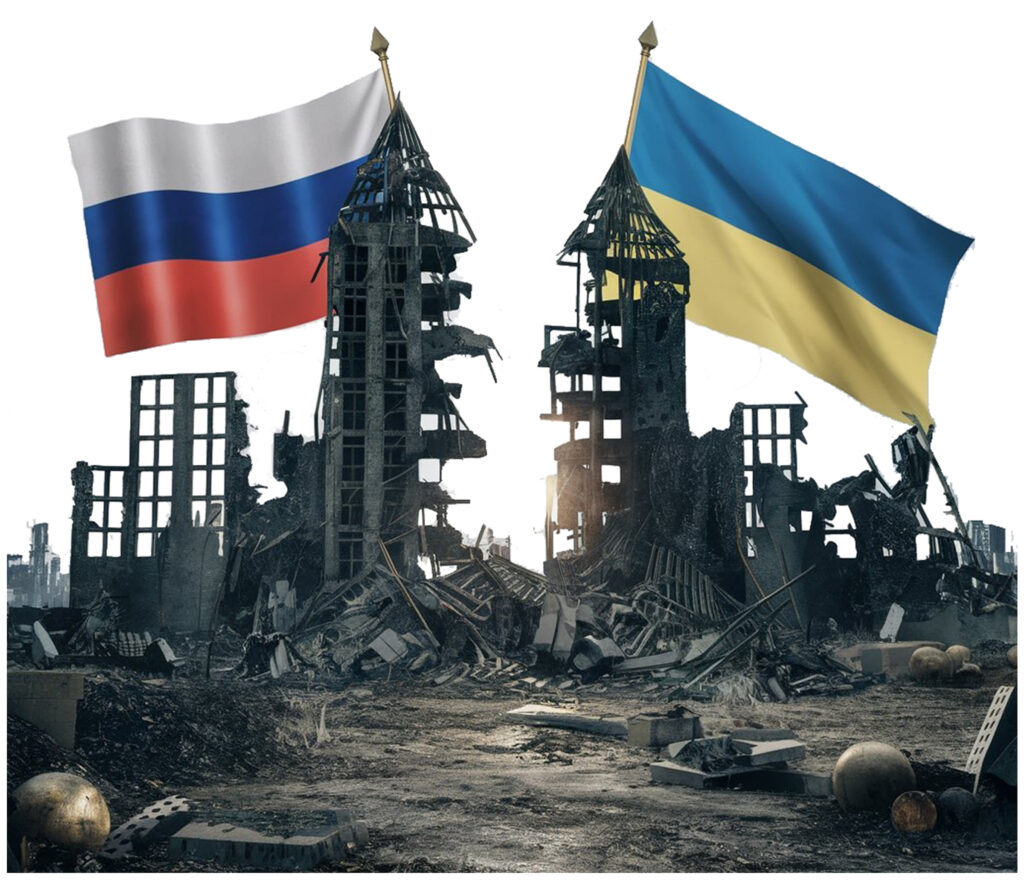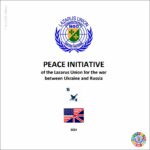The International Day of Zero Tolerance for Female Genital Mutilation (FGM), observed on 6 February, is a crucial moment for global awareness and action. FGM is a deeply entrenched violation... Read more
ENDING WARS THROUGH NEGOTIATION
An analysis with the example of the Peace of Westphalia of 1648 and the modern challenge of nuclear powers.
(This paper reflects the opinion of the author)
INTRODUCTION
Wars have always been a part of human history and have often brought untold suffering to those involved. The question of how wars can be ended is central to the understanding of international politics and peace studies. This essay argues that wars can only be ended effectively and sustainably through negotiation. This thesis is illustrated with reference to the Peace of Westphalia of 1648, a historical turning point in European diplomacy. It also shows why victory against a nuclear power by conventional means is practically impossible in the modern era and why negotiations are therefore essential.
THE PEACE OF WESTPHALIA IN 1648: A HISTORICAL TURNING POINT
The Peace of Westphalia in 1648 marked the end of the Thirty Years’ War in Europe, one of the most devastating conflicts of the early modern era. This war, which raged from 1618 to 1648, devastated large parts of Central Europe and led to enormous human and economic losses. The peace negotiations that led to the Treaty of Westphalia lasted several years and involved numerous European powers, including the Holy Roman Empire, France, Sweden, Spain and the Netherlands.
The Peace of Westphalia is an outstanding example of ending a war through negotiation for several reasons:
- Inclusiveness of the negotiations: The peace negotiations included almost all parties involved, which ensured that the interests of all major players were taken into account. This helped to prevent future conflicts and ensure stability in Europe.
- Sovereignty and balance of power: Peace laid the foundation for the modern system of nation states by recognising the sovereignty of states and establishing a balance of power. This was an important step towards creating a more stable and peaceful Europe.
- Long-term stability: Although the Peace of Westphalia did not end all conflicts in Europe, it created a new diplomatic order that continues to have an impact today. The principles of sovereignty and the balance of power remain central elements of the international system.
THE IMPOSSIBILITY OF A VICTORIOUS PEACE AGAINST NUCLEAR POWERS
In the modern era, the idea of ending a war through complete victory, especially in the context of nuclear powers, is highly problematic. Nuclear weapons have the potential to cause immeasurable suffering and destruction, and their existence has fundamentally changed the nature of war and peace negotiations.
- Deterrence through nuclear retaliation: Nuclear powers are capable of launching massive retaliatory strikes that could potentially endanger all of humanity. This leads to a stalemate in which neither side can win a conventional war without the risk of a nuclear conflict.
- Global destruction: A conventional victory over a nuclear power would probably lead to the use of nuclear weapons, which would have catastrophic global consequences. This makes military victory impractical and highly risky.
- Need for diplomacy: Given these risks, diplomacy is the only sensible solution. Negotiations offer a way to reduce tensions and resolve conflicts without resorting to the extreme risk of nuclear war.

NEGOTIATIONS AS THE ONLY VIABLE PATH
Wars, especially in the era of nuclear weapons, can only be ended effectively and sustainably through negotiations. The Peace of Westphalia shows that even protracted and complex conflicts can be resolved through diplomatic efforts. In today’s world, where the destructive power of weapons has reached unimaginable proportions, negotiations are all the more important.
- Complexity of modern conflicts: Modern wars are often multilateral and involve numerous states and non-state actors. Negotiations make it possible to address the diverse interests and concerns of these parties and find a comprehensive solution.
- Human suffering and economic costs: The continuation of a war causes immeasurable suffering for civilians and destroys the economic foundations of nations. Negotiations offer an opportunity to break this cycle and begin reconstruction.
- Stability and peace: Lasting peace can only be achieved through mutual agreement and the creation of stable political structures. Negotiations are the way to establish such structures and prevent future conflicts.
CONCLUSION
History has shown that wars can only be ended effectively and sustainably through negotiation. The Peace of Westphalia in 1648 serves as an instructive example of the power of diplomacy in ending protracted conflicts. In the modern world, where nuclear weapons are an ever-present threat, negotiation is not only desirable but essential. Victory by conventional means against a nuclear power is not only unrealistic but would jeopardise the very existence of humanity. Diplomacy therefore remains the only viable way to end wars and secure lasting peace.
Oliver M. Gruber-Lavin y Ochoa, FRSA








